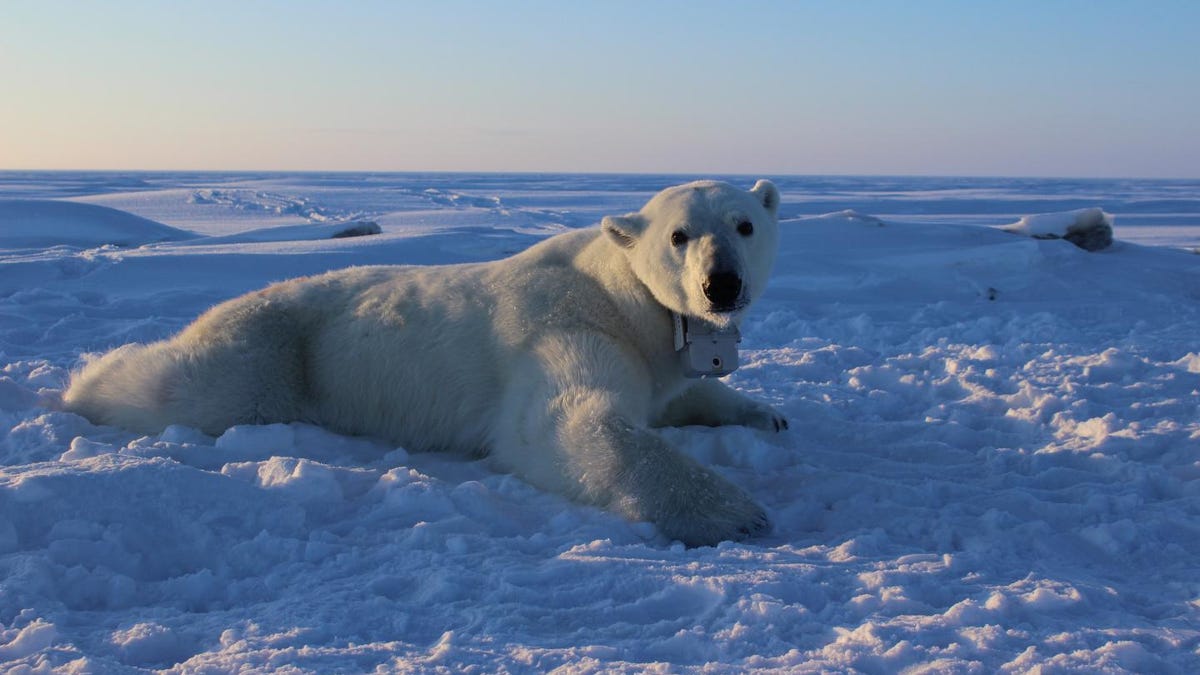Polar bears struggling to catch enough seals as ice fades
High-tech collars fueled a new study showing the impact of climate change on polar bears.

This polar bear wears a high-tech collar for tracking its behavior, location and hunting success.
The plight of the polar bear is looking more dire all the time.
A new study finds the large predators have a higher metabolic rate than previously expected and prey is getting harder to catch as climate change causes sea ice to retreat sooner than ever.
Researchers monitored a group of nine female polar bears in the Arctic over the course of two years. They used collars equipped with point-of-view cameras and location-tracking tech to follow the bears' movements and feeding behavior. They also measured the bears' metabolic rates using blood and urine samples.
"We found that polar bears actually have much higher energy demands than predicted. They need to be catching a lot of seals," says Anthony Pagano, a US Geological Survey wildlife biologist and doctoral candidate at University of California Santa Cruz. Five of the nine bears lost mass at a time when they should have been packing on body fat.
The team, led by Pagano, published its findings Friday in the journal Science.
Polar bears can readily hunt seals on sea ice, but it's much more difficult to catch the prey when the ice is gone and bears end up expending energy by traveling over greater distances.
"As sea ice becomes increasingly short-lived annually, polar bears are likely to experience increasingly stressful conditions and higher mortality rates," the study says.
Polar bears are currently listed as vulnerable on the International Union for Conservation of Nature's Red List of Threatened Species.
University of New Mexico biologist John Whiteman wrote a perspective piece on the study for Science. Citing a previous study, Whiteman says, "Ice loss, if unabated, will eventually cause the extinction of polar bears in the wild, but continued research is needed to understand the climate-related pressures that polar bears face."
Rebooting the Reef: CNET dives deep into how tech can help save Australia's Great Barrier Reef.
CNET Magazine: Check out a sample of the stories in CNET's newsstand edition.

